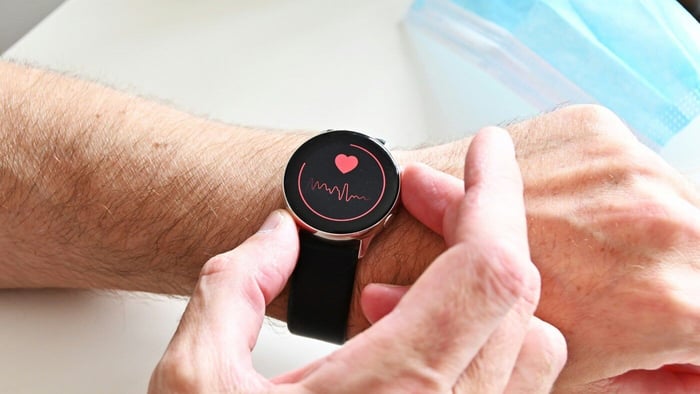Table of Contents
Vitamin K2 plays an important role in heart health. It directs calcium to your bones where it belongs while keeping it out of arteries where it can build up and cause bad cardiovascular outcomes.
Despite these obvious benefits, it’s often overlooked in doctor-patient discussions that prioritize statins or other drugs that promise quick fixes on lipid panels.
Understanding the benefits of vitamin K2 could be the missing piece for many who want to maintain a healthy heart and prevent cardiovascular issues down the line.
What Is Vitamin K2?
Vitamin K2, or menaquinone, is a fat-soluble vitamin that helps your body regulate calcium. (1) There are several different subtypes of K2, but the most common found in supplements are menaquinone-4 (MK-4) and menaquinone-7 (MK-7). You may also see MK-4 on labels as menatetrenone.
When it comes to heart health, K2 helps direct calcium to your bones while keeping it from accumulating in the arteries. This means a lower risk of arterial calcification.
All vitamins within the vitamin K family play an essential role in blood clotting. Studies show the effects of vitamin K2 may be longer-lasting than those of vitamin K1, or phylloquinone, because it’s filtered out of your body more slowly. (2)
All K vitamins are crucial to bone and heart health, but vitamin K2 has unique benefits for long-term cardiovascular health.
Benefits
Vitamin K2 is involved in several essential processes that keep us healthy, but it’s particularly important for strong bones, healthy blood clotting, and heart health.
Bone Health
We talk a lot about calcium when it comes to healthy bones, but calcium doesn’t work in a vacuum. It needs vitamin K and vitamin D for overall skeletal health.
Vitamin K2 is essential to maintaining strong bones and preventing osteoporosis. It plays a key role in bone metabolism by activating osteocalcin, a protein that binds calcium to the bone matrix. (3)
This activation process helps improve bone mineral density, which means stronger, more resilient bones, especially as you age.
Without enough vitamin K2, your body may not use calcium as effectively, which could mean weaker bones and an increased risk of bone fractures.
Studies show getting enough vitamin K2 can help prevent or slow the progression of osteoporosis in higher-risk populations like postmenopausal women. (4) Clinical trials have looked at vitamin K2 as a possible treatment for postmenopausal osteoporosis with promising results. (5)
Researchers found fewer fractures and better bone mineralization — the process where minerals are deposited into the bone matrix for stronger bones — with K2 supplementation.
Blood Clotting
Vitamin K2 activates proteins that help regulate coagulation, or the process where blood clots form, to prevent excessive bleeding. This process also supports proper wound healing. (6)
Vitamin K1, another form of vitamin K, is important here, too, as it produces clotting factors in your liver. K2 does the same throughout the body, though. (7)
Vitamin K2’s effects on calcium metabolism mean stronger bones without arterial calcification. Essentially, it helps calcium get to where it needs to go before it starts building up in the arteries. This is important to your circulatory and cardiovascular health.
Cardiovascular Health
Those preventive effects against arterial calcification make vitamin K2 essential to a reduced risk of atherosclerosis. Healthy levels of vitamin K2 could even keep you off of statins and other heart medications that often come with unwanted side effects.
Let’s take a closer look at the science, as it’s why we include the vitamin in our heart-healthy dietary supplements.
Toku Flow is a daily supplement that combines vitamin K2 with nattokinase and beta-glucan to support heart health through cholesterol balance, optimal blood pressure, and more.Vitamin K2 works by activating the matrix Gla protein (MGP) that helps inhibit calcium deposits in the arteries. (8) Preventing vascular calcification keeps those arteries flexible enough that calcium doesn’t accumulate in blood vessels on its way to your bones.
Improved arterial flexibility supports healthy blood flow, potentially lowering blood pressure and reducing cardiovascular disease risk.
Without enough vitamin K2, calcium buildup can cause arterial stiffness and an increased likelihood of heart attacks and strokes.
Arterial flexibility is important to lipid metabolism, too. (9) Stiff arteries can impair blood flow and contribute to poor lipid transport and clearance. Flexible arteries improve circulation and allow lipids like cholesterol to be properly removed, further reducing your risk of plaque buildup.
While low-density lipoprotein cholesterol (LDL-C), the “bad” kind, isn’t the be-all and end-all you may have been led to believe for solid heart health, related biomarkers do play a role.
LDL particle size and Lp(a), a lipoprotein that plays a critical role in blood clotting, are more important considerations on a lipid panel, but they’re not common asks at the doctor’s office.
Finally, vitamin K2 reduces inflammation, a key to overall oxidative stress levels that can make it harder to keep cardiovascular events at bay. It does this by inhibiting pro-inflammatory markers like interleukin-6 that act as barriers to overall cardiovascular and metabolic health. (10)
Read Next: 8 Ways to Improve Circulation
Other Benefits
Vitamin K2’s anti-inflammatory benefits affect other aspects of overall health. That includes a reduced risk of chronic diseases and potential protective effects against certain cancers.
Studies show vitamin K2 may inhibit the growth of tumor cells responsible for cancer cell growth in the prostate and lungs. (11) That same study saw protective effects with K2 supplementation against liver cirrhosis.
Other studies show that vitamin K2 may support metabolic health by activating proteins involved in proper glucose metabolism. This, in addition to its lipid-lowering effects, may improve insulin sensitivity, potentially reducing the risk of type 2 diabetes. (12)
Vitamin K2’s effects on calcium distribution mean better dental health, too. Your teeth aren’t bones, but they do store calcium in a similar way. Better calcium regulation means stronger enamel and fewer cavities.
Sources of Vitamin K2
Vitamin K1 is limited to leafy greens and herbs. While those are great (and rich in magnesium!), K2 is more bioavailable. Vitamin K2 is found naturally in several different food sources and vitamin K supplements:
Natto: This Japanese fermented soybean dish is one of the richest sources of vitamin K2 in the form of MK-7.
Fermented foods/drinks: Kefir, sauerkraut, and kimchi contain vitamin K2 and beneficial gut bacteria for a healthier microbiome.
Egg yolks: Two egg yolks can meet your daily recommended intake of K2, but try to buy eggs from pasture-raised hens over grain-fed. Eggs are also rich in vitamin B12.
Cheese: Hard and semi-hard cheeses like Edam, Gouda, and Emmental contain notable amounts of vitamin K2. Blue cheese is your best source of vitamin K2 among soft cheeses.
Liver: Liver from grass-fed animals like chickens or cows generally contains more K2. Liver is also rich in iron, vitamin A, and B vitamins.
Chicken: Pasture-raised chickens are a decent source of K2 as MK-4 if organ meats aren’t staple animal products in your diet.
Butter: Grass-fed butter contains more vitamin K2 and omega-3 fatty acids compared to conventional types.
Nattokinase: Supplements derived from vitamin K2-rich natto offer an efficient boost for better heart health. Our supplement Toku Flow includes oat beta-glucan, a type of soluble fiber recognized for its cholesterol-lowering and heart-healthy properties.
Ideal Dosage
There is no established recommended dietary allowance (RDA) for vitamin K2, but general guidelines suggest around 90-120 micrograms (mcg) of vitamin K per day for adults.
Researchers suggest that there should be set guidelines for vitamin K2 specifically because it’s more bioavailable with unique health benefits compared to other types of vitamin K. (13)
The appropriate intake of vitamin K2 for you depends on your health concerns, any existing deficiencies, and your goals for supplementation.
We suggest that supplements with around 180 mcg of vitamin K be consumed daily for optimal results. Supplements can come as powders, capsules, softgels, or gummies.
Vitamin K2 is generally considered safe for daily use, with a low risk of side effects when taken within recommended doses. This one is fat-soluble, so it’s absorbed better when consumed alongside healthy fats like avocados or olive oil.
Risks and Side Effects
You should always start with your healthcare provider if you’re thinking about boosting your intake of vitamin K or any essential nutrient. That’s especially true if you have underlying conditions or are on existing medications.
Vitamin K2 can interact with anticoagulants or blood-thinning medications like warfarin, as it plays a role in blood clotting.
The risk of side effects with a daily intake of vitamin K2 is low. Less common side effects may include mild digestive discomfort, loss of appetite, swelling, muscle stiffness, and fatigue. In rare cases, supplements may cause an allergic reaction.
Seek medical attention immediately if you notice hives, rashes, or respiratory symptoms like wheezing or shortness of breath after taking a vitamin K2 supplement.
The Bottom Line
Vitamin K2 is an important addition to natural tools for heart health like nattokinase, stress reduction, and anti-inflammatory diet choices. Proper supplementation can help reduce your risk of arterial plaque buildup, a key predictor of bad heart outcomes down the line.
You don’t need to turn to pharmaceuticals for better cardiovascular health, especially if you’re looking for preventative ways to reduce your heart disease risk. If you’re facing decision time on statins, talk to your doctor about changes you can make to your supplement regimen or diet first.
FAQs
Should I take vitamin K2 with vitamin D3?
Vitamin K2 works together with vitamin D3 to help your body absorb calcium, so it’s common to see the 2 together as one supplement. While vitamin K2 ensures calcium is directed to your bones over soft tissues like the arteries, vitamin D3 helps your body absorb calcium.
Can you have vitamin K2 deficiency?
Vitamin K and K2 deficiencies are relatively rare, as many get a healthy amount of vitamin K as part of their dietary intake. (Your body can convert some vitamin K1, more common in dietary sources, to K2.)
A true vitamin K deficiency can happen in those with poor diets, malabsorption issues, or those on certain medications like antibiotics. The signs may include weakened bones and an increased risk of fractures and bleeding.
That doesn’t mean most adults wouldn’t benefit from a boost in vitamin K2, particularly those concerned about their cardiovascular risk or at risk for conditions like coronary artery disease.




